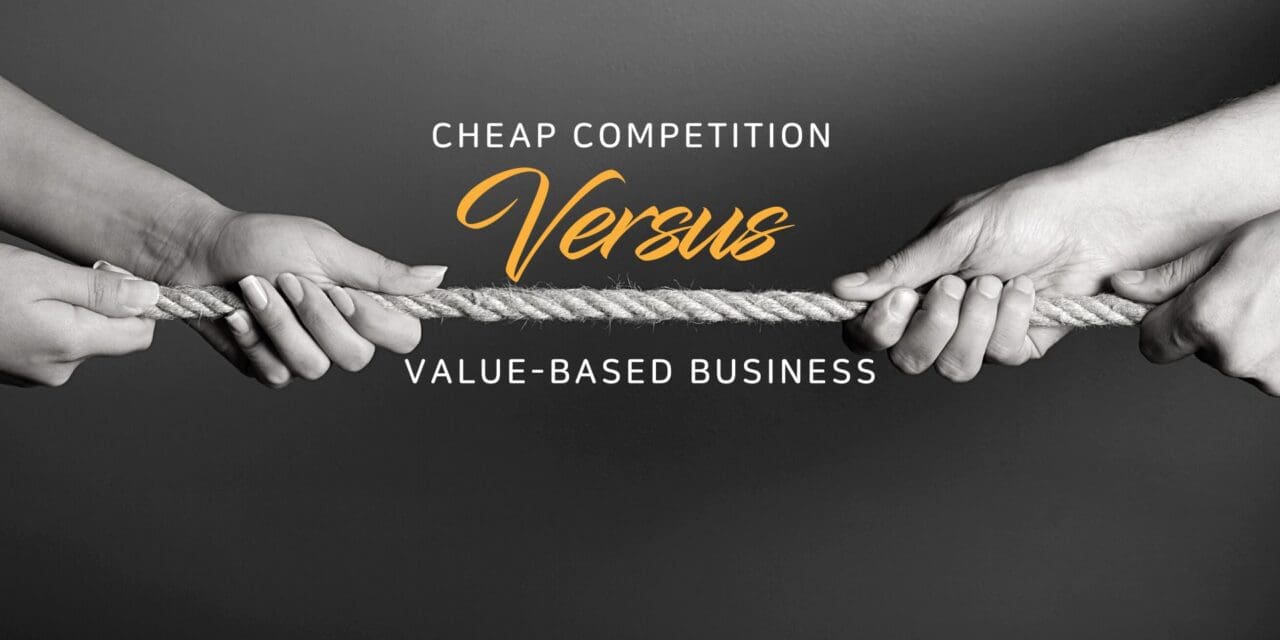Yet when every business in a sector is focussed on offering the lowest price, it quickly becomes a race to the bottom with no value to the businesses involved and little benefit to the customers in terms of choice.
So how can you avoid the trap of falling back onto ‘cheap’ competition?
The problem with cheap
Cheap is a relative term that means different things to different people but is often interpreted to mean ‘cheap and nasty’. Why a seller of a product or service uses the word cheap can vary enormously from one to another.
In business there is a viable place for products that are budget and affordable, but not every business can position themselves as the cheapest, and when they do, they omit the other benefits that are likely to lure a customer.
Instead, it pays to consider the “value” of the product and service you offer, which opens up a whole wealth of choice for a consumer and can make a very real difference to a business’ bottom line.
The concept of value
Like cheap, value can mean different things to different people, but it is accepted as a term that goes beyond the single element of price point.
It indicates that at that price there are extra benefits to be had when using a product or service. These benefits might include:
- After sales service
- Product longevity
- Product reliability
- A warranty or guarantee
- Higher quality
- Customer service
- Ease of use
And the list goes on, but each offers a point of difference from just positioning a product at the very lowest price.
Now it comes down to highlighting those benefits to the people who want to hear about them most.
The right customer at the right price
The right customers will be receptive to hearing why they should pay more for one product over another.
But to target them you need to know them, and you need to be crystal clear about the benefits your products or services will offer them to meet their specific needs. When you find that ideal client they will look beyond the price factor and explore the concept of value.
It comes down to these key factors:
- Intimately understanding your ideal customer and their motivations
- Knowing your company’s unique strengths and the point of difference you offer
- Reaching them effectively with your company’s marketing and messaging
Cheap versus value – a case in point
I have a client in an industry where the bargaining power of suppliers is enormous, as is the bargaining power of buyers. New entrants appear regularly, substitutes abound and Industry rivalry is ‘humungous’.
Notwithstanding this, my client sells the product at approximately double the price and double the volume of the industry norm (over triple the immediate competition). His customers believe they get tremendous value for money, while none refer to it as cheap, or as expensive. There’s a message in that.
His immediate competitors sell ‘cheap’ to meet the market, yet at the low prices sell less than 20 per cent of his volume – his market apparently is different.
Cheap will generally attract a “particular” client to the business using the term and in most cases this client can be identified before putting the message out.

Discover More in Sales Doesn't Have to be Scary
Every business needs to “Sell” but Sales is a word and concept that often scares business owners and people. Sales doesn't have to be scary join Clive Enever to find out how and why.


















